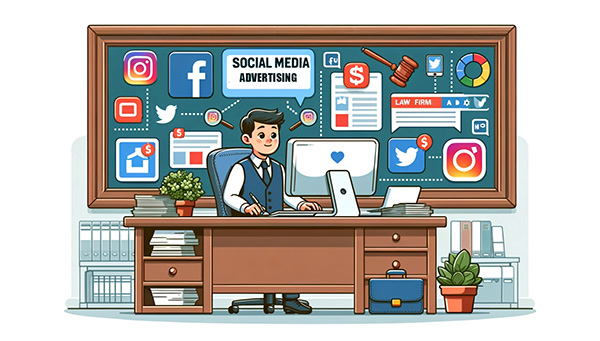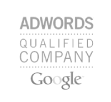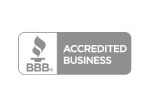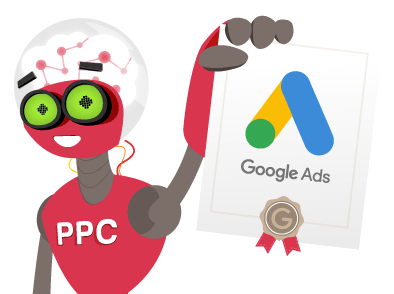In today’s digital age, the most effective form of advertising combines online platforms with traditional methods. Whether it's leveraging the targeted capabilities of social media ads, the broad reach of Google Ads, or traditional advertising like radio or print ads, understanding your audience and market is key. This approach ensures your legal services are visible to the right people at the right time, maximizing both reach and relevance.
Before you begin, familiarize yourself with the lawyer advertising rules in your area and the American Bar Association rules to avoid unethical practices and potential repercussions.
The Best Form Of Law Firm Advertising
Multi-Channel Approach (A Blended Approach)
A multi-channel advertising approach is highly beneficial for law firms, leveraging various platforms to maximize reach and engagement. This strategy integrates different forms of digital advertising and traditional advertising—such as PPC, SEO, social media, TV, and print—to create a cohesive and comprehensive marketing campaign.
Lawyer advertising examples for a multi-channel approach can include targeted social media campaigns, informative webinars, and local TV spots. Additionally, placing ads in legal directories and using search engine optimization on the law firm's website can broaden its reach. This blend ensures visibility across various platforms, attracting diverse client demographics.
The advantages of employing a multi-channel approach are considerable. It allows law firms to reach broader and more diverse audiences, catering to different preferences and behaviors. For instance, while younger clients might be reached effectively through social media or video advertising, older demographics might respond better to traditional print advertising or TV commercials. Additionally, this approach reduces the risk of over-dependence on a single source of client acquisition, providing stability and consistency in lead generation.
Furthermore, a multi-channel strategy enables law firms to collect and analyze data from various sources, offering insights that help refine marketing tactics and improve ROI. By engaging potential clients through multiple touch points, law firms can improve their chances of converting inquiries into cases, ensuring a steady business flow in a competitive market.
Local SEO

Local SEO is indispensable lawyer advertising and legal advertising, especially effective for those aiming to capture the attention of potential clients within their geographical vicinity. Unlike broader SEO strategies targeting a global audience, local SEO focuses specifically on optimizing a law firm’s presence in local search results and maps, which are critical touchpoints for clients seeking legal assistance nearby.
The advantages of Local SEO are significant. It improves the law firm's presence in local search directories such as Google My Business, increasing the likelihood of appearing in the coveted "local pack" of search results. This targeted visibility results in heightened website traffic from local users, who are more inclined to convert into consultations and clients due to the convenience factor associated with proximity.
Moreover, Local SEO builds local trust and credibility by accumulating relevant local reviews and consistent local citations. This focus on the local aspect ensures that law firms are found and considered reputable by the community they serve. This strategy can be particularly more cost-effective than broader SEO, as it competes within a smaller market segment, potentially yielding quicker and more impactful results for law firms looking to establish a strong local presence.
Pay Per Click (PPC)

PPC ads are commonly recognized as highly effective forms of online advertising for lawyers and the legal industry. They offer immediate visibility and precise targeting in the competitive legal market. A major advantage of PPC for law firms is its ability to deliver fast results. By appearing at the top of search engine results for targeted keywords and target audiences, law firms can promptly capture the attention of potential clients actively seeking legal services.
PPC campaigns offer measurable outcomes, enabling firms to monitor each click and conversion. This capability simplifies the process of accurately calculating the return on investment. This data-driven approach enables law firms to optimize their ad spend efficiently, reallocating budgets towards the most effective keywords and ad formats.
Another significant advantage is the flexibility PPC offers. Law firms can start, pause, or adjust their campaigns in real time based on performance or budget considerations. This agility is crucial in adapting to market changes or capitalizing on emerging legal trends, providing a competitive edge that is vital in the fast-paced legal environment. Through PPC, law firms can strategically position themselves in front of potential clients at the critical moment they are needed, enhancing both client acquisition and brand visibility.
Video Advertising

Video advertising is an exceptionally effective medium for law firms, leveraging the power of visual storytelling to engage potential clients. Videos allow lawyers to convey their expertise, professionalism, and personal approach in a way that text and images alone cannot match. This dynamic advertising approach can notably boost brand recognition and foster client engagement.
The benefits of video advertising for law firms include increased memorability and stronger emotional connections, which are crucial when clients choose legal representation. Videos are also highly shareable, increasing the likelihood of viral marketing benefits. They also improve SEO, as websites with video content often receive higher rankings on search engines. Additionally, videos can be repurposed across various platforms, from a law firm’s website to social media channels, maximizing reach and investment.
Moreover, video content allows firms to succinctly explain complex legal concepts, showcase client testimonials, and highlight successful case studies, which can help demystify legal processes and reassure potential clients of the firm’s capability and reliability. This format's ability to convey authenticity and trust can be particularly persuasive in the legal field, where choosing a lawyer is a significant personal decision.
Content Marketing

Content marketing stands out as a particularly effective form of advertising for lawyers, mainly due to its ability to build trust and authority in a field where expertise is highly valued. Law firms can greatly enhance their visibility and reputation by crafting and disseminating valuable, relevant, and consistent content. This strategy helps educate potential clients about legal issues and establishes the firm's lawyers as knowledgeable and trustworthy experts in their specific legal areas.
There are numerous advantages to content marketing for law firms. First, it improves SEO, driving organic traffic to the firm's website as content like articles, blogs, and white papers are indexed by search engines and improves search rankings. Additionally, content marketing supports other digital marketing strategies by providing substance for social media posts and email marketing campaigns, ensuring a cohesive and integrated approach.
Furthermore, quality content has a long shelf life. It continues to generate client leads long after it is first published, offering an excellent return on investment. Compelling content also stimulates online sharing and discussions, broadening the firm’s reach and potential client base organically. Through investment in content marketing, law firms can draw in more clients and establish enduring relationships with them.
Search Engine Optimization (SEO)

SEO is increasingly recognized as one of the best forms of advertising for lawyers due to its ability to attract high-quality, organic traffic to law firm websites. By optimizing their website content, structure, and on-page metadata for search engines, law firms can achieve higher rankings in search results, increasing visibility to potential clients actively seeking legal assistance.
One of the primary advantages of SEO for law firms is the establishment of long-term, sustainable visibility. Unlike paid advertisements, which cease generating traffic once the campaign concludes, a well-ranked SEO page can continue attracting visitors for months or even years following its initial optimization. Moreover, SEO aids in building credibility and trust; research indicates that numerous users consider organic search results more trustworthy than paid advertisements, perceiving them as more reputable.
Additionally, SEO allows law firms to target specific types of clients by optimizing content for specific search queries related to their legal services. This targeted approach not only enhances the quality of the traffic but also boosts the conversion rates of those visiting the site. Investing in SEO can yield an impressive return on investment, as it captures the attention of potential clients when they seek legal help.
Social Media Advertising

Social media advertising is an exceptionally effective form of advertising for lawyers due to its vast reach and precise targeting capabilities. Social media platforms such as Facebook, LinkedIn, and Instagram enable law firms to customize their marketing strategies to particular demographics, locations, and interests, ensuring that their messages reach the most relevant audiences. This targeted approach not only maximizes ad spend efficiency but also enhances the likelihood of engaging potential clients actively seeking legal services.
Social media advertising offers numerous advantages. It provides real-time performance feedback, enabling firms to adjust strategies quickly based on what's working. This agility helps in optimizing campaigns for better results and higher ROI. Additionally, social media platforms offer a unique opportunity for law firms to build brand awareness and establish thought leadership through engaging content that resonates with their audience.
Moreover, social media's interactive nature fosters direct communication with prospects, expediting the trust-building process, which is crucial in the client-lawyer relationship. By leveraging these platforms, law firms can attract new clients and maintain ongoing relationships, keeping them top of mind for future legal needs.
Website Optimization

Website optimization is increasingly recognized as a critical form of advertising for law firms. It enhances a firm's digital presence and ensures potential clients find their website easily and quickly. This process involves refining the site's structure, improving load speeds, and ensuring it is mobile-friendly, making the website accessible to clients no matter what device they use.
The benefits of website optimization are manifold. Firstly, it significantly improves the user experience, reducing bounce rates and increasing the duration visitors stay on the site. This boosts the likelihood of converting visitors into clients and positively impacts SEO rankings, as search engines favor well-optimized sites. Additionally, a seamless, fast, and intuitive website helps establish a professional image for the firm, reinforcing trust and credibility among potential clients.
Moreover, optimizing a website includes refining content and using strategic keywords that potential clients might use in their search queries. This targeted method not only draws more relevant visitors to the site but also enhances engagement and conversion rates. Effective website optimization ensures that a law firm is seen and favored by both search engines and prospective clients, making it a powerful tool in a competitive market.







